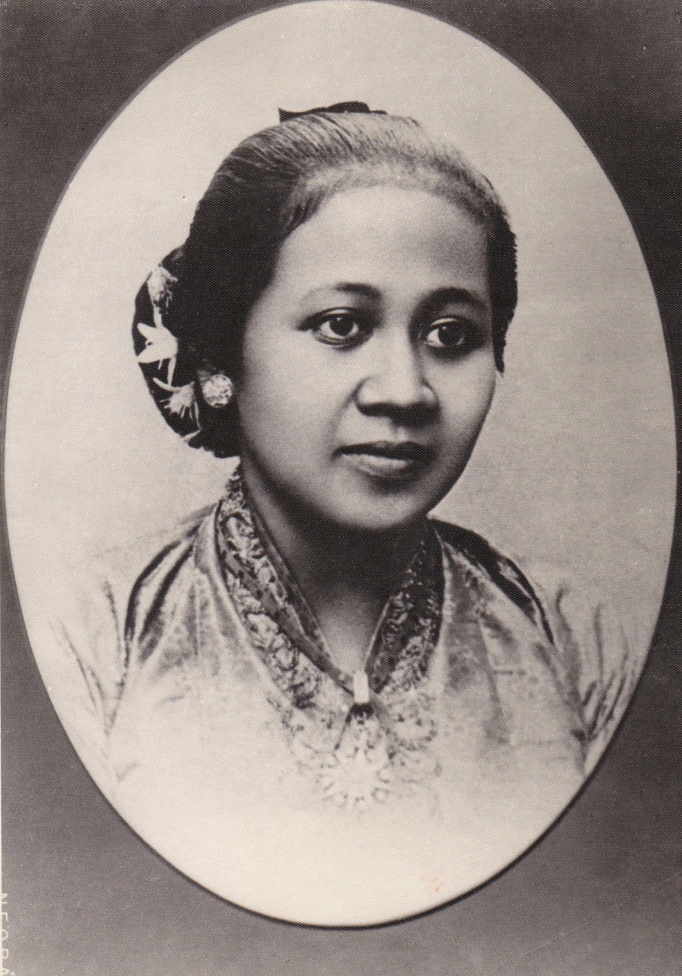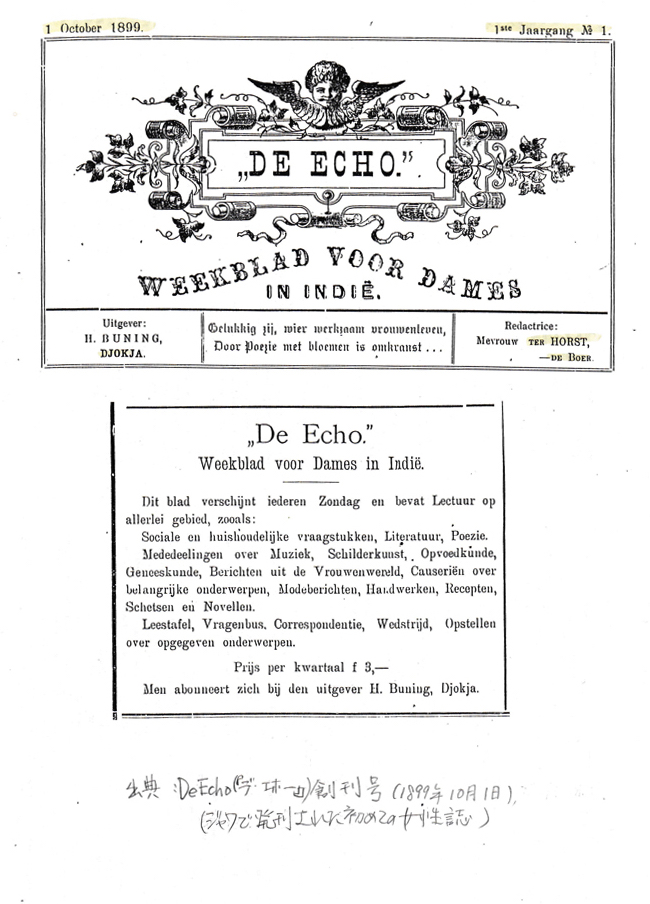- Project Leader : Tominaga Yasuyo (Osaka University, School of Foreign Studies)
Outline of Research
Raden Adjeng Kartini (1879-1904), today acknowledged as a forerunner of women’s emancipation in Indonesia, became famous both in the Netherlands and the Dutch East Indies after the posthumous publication of a selection of her letters. The compilation was edited by H. Abendanon under the title Door Duisternis tot Licht [Through Darkness to Light] in 1911. He was the Director of Education, Religion and Industry and a promoter of the Ethical Policy in the Dutch East Indies. Door Duisternis tot Licht is regarded as the principal source on Kartini studies. Kartini’s letters are a humanist account of the global ethic related to the dignity of a human being, an articulation of the new thoughts emerging in the late nineteenth century. Brieven: aan mevrouw R. M. Abendanon-Mandri en haar echtgenoot [Letters to Mrs. R. M. Abendanon-Mandri and Her Husband] was edited in 1987. Comparison of both editions reveals how Abendanon’s compilation deleted nearly 80% of Kartini’s original content, silencing her voice.
Description
All of the letters written by Kartini were not printed by H. Abendanon, who selected only some for his compilation to ensure that it found a readership both in the Netherlands and in Java. In his preface to Door Duisternis tot Licht, Abendanon wrote that the publication aimed to spur the establishment of Kartini Schools in Java. The book was a great success. Its Indonesian version, titled Habis Gelap Terbitlah Terang, was greatly influenced by Abendanon’s editing and by 1964 Kartini had become one of the pahlawan nasional [national heroes].
Door Duisternis tot Licht is regarded as the principal source on Kartini studies, in which Kartini is discussed in the context of Indonesian nationalism and the Ethical Policy at the beginning of the twentieth century. Although it is true that Kartini has mainly been considered in relation to the Ethical Policy, she was born and acquired a Dutch education before the policy was implemented. In 1987, Brieven: aan mevrouw R. M. Abendanon-Mandri en haar echtgenoot [Letters to Mrs. R. M. Abendanon-Mandri and] (hereafter cited as Brieven) was edited in the Netherlands. Brieven contained the complete correspondence between Kartini and Mr. and Mrs. Abendanon, as opposed Door Duisternis tot Licht, which contained less than fifty of the more than ninety letters written by Kartini to Mrs. Abendanon and her husband H. Abendanon, mostly in extract form only. Comparison of the two editions reveals that H. Abendanon edited Kartini’s letters beyond recognition. A reading of Brieven reveals that Kartini initiated a promotion of arts and crafts in her home town Japara related to the European women’s society and that she could directly engaged with new ideas and activities of the late nineteenth century, including women’s emancipation, the peace movement, and social welfare. It is no exaggeration to say that Kartini’s letters are a global humanist account of cultural encounters that highlight the dignity and worth of the human being.


